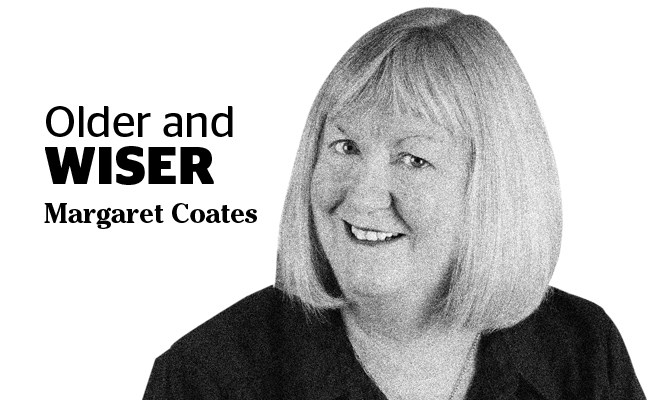A new year inspires people to make resolutions they hope will change their lives.
People resolve to get fit, lose weight, be happier, live life to the fullest, live to be 100, and the list goes on. Sage advice from a variety of experts suggests that people should try to make resolutions which are doable so they will see successes, even though they may be small. Goal achievement is built on taking small, incremental steps.
A resolution I make every year is to eat healthy and get fit. Many people, myself included, try to make radical changes in their diet, which led Lesley Lutes, psychology professor at the University of British Columbia, to say, “all-or-nothing behaviour becomes overwhelming, leaves you feeling deprived, and sets you up for failure.”
In an article in Consumer Report on Health’s January edition, the authors suggest a few strategies to make changes with small but satisfying payoffs. One is to pay attention to “approach food” rather than “avoidance food.” Try a big bowl of strawberries instead of kale (which you might hate) and you may not want the piece of chocolate cake you have been craving. Three other strategies include eating your veggies first, which will fill you up and also increase your veggie intake, going meatless one day per week, which may lower your risk of heart disease, and eating a smaller portion of your favourite snack, which allows you the treat you want but less of it for a small but overall gain.
In order to get fit, attempt a program which is within your capability – don’t rush off and sign up for five or seven days at the gym. Instead, try a few classes to start and perhaps combine that with a few walks or hikes. An oft-circulated online list of top-10 strategies for success suggests that “quite possibly the biggest mistake people make is pushing the accelerator too soon.” So, the recommendation is to “start small.”
On the North Shore, there are seniors’ fitness programs at the recreation centres, seniors’ centres and organizations with seniors’ fitness programs. Try programs at Silver Harbour Seniors’ Activity Centre, Parkgate, West Vancouver Seniors’ Activity Centre, and North Shore Neighbourhood House. For a gentle fitness program try Keep Well, which can be found at all the facilities above.
For Christmas I received a book titled How to Live to 100. The book included 100 tips on practical strategies for longevity. Tip No. 2 (“Play bingo”) stresses that seniors can live longer by doing stuff that is easy and fun. The author quotes a study from the Harvard School of Public Heath that says “social engagement can have as much effect on prolonging life as fitness activities … The simple message is: stay involved to stay alive.”
How to Live to 100’s Tip No. 1 is “Avoid left turns.” The progressives among you will be glad to hear that the author is referring to driving behaviour, not political action. Michael Powell argues that this strategy reduces your risk of dying in a car accident and also saves gas, thus lowering your carbon footprint and perhaps ultimately saving the planet through an act of self-preservation. A small step with big outcomes, it seems to me.
Margaret Coates is the co-ordinator of Lionsview Seniors’ Planning Society. She has lived on the North Shore for 47 years and has worked with and for seniors for 20 of those. Ideas for future columns are welcome. Email: [email protected]. Info: lionsviewseniorsplanning.com.



